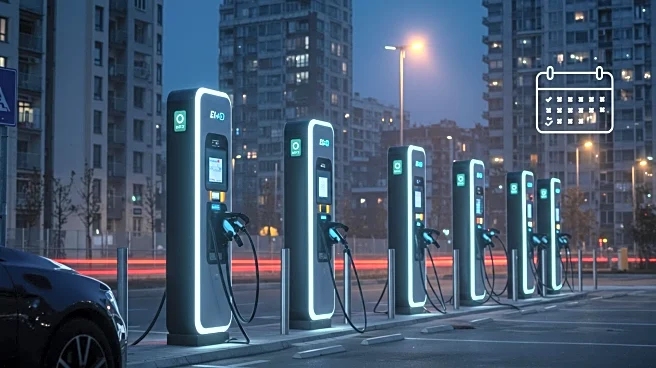What is the story about?
What's Happening?
Electric vehicle sales in the United States experienced a significant increase in July, rising by 20% compared to the previous year. This surge is attributed to several factors, including the impending end of the US EV tax credit on October 1, which has prompted a rush of buyers eager to take advantage of the incentives before they expire. The month saw over 130,000 EVs sold, marking it as the second-highest sales month in US history and the highest for mid-year sales. Additionally, EV prices dropped considerably, with the average incentive package reaching 17.5% of the average transaction price, a record high. This increase in incentives is part of efforts by automakers and dealers to move inventory before government support declines.
Why It's Important?
The surge in EV sales highlights the impact of government incentives on consumer behavior and the automotive market. As the tax credit deadline approaches, buyers are motivated to purchase EVs, potentially leading to a temporary boost in sales figures. This situation underscores the importance of policy decisions in shaping market dynamics and consumer choices. Automakers, particularly those with significant market shares like Tesla, stand to benefit from increased sales volumes, while consumers gain from reduced prices and incentives. However, the expiration of the tax credit may lead to a slowdown in sales, affecting the growth trajectory of the EV market in the US.
What's Next?
With the tax credit set to expire on October 1, it is expected that the rush of EV purchases will continue through September. Automakers and dealers may continue to offer attractive incentives to maintain sales momentum. The expiration of the tax credit could lead to a reassessment of pricing strategies and inventory management by automakers. Additionally, policymakers may face pressure to introduce new incentives or support measures to sustain the growth of the EV market and encourage the transition to cleaner transportation options.
Beyond the Headlines
The expiration of the EV tax credit raises questions about the long-term sustainability of government incentives in driving market growth. It also highlights the need for a comprehensive strategy to support the transition to electric vehicles, including infrastructure development and consumer education. The current situation may prompt discussions on the role of government in fostering innovation and environmental sustainability in the automotive industry.














